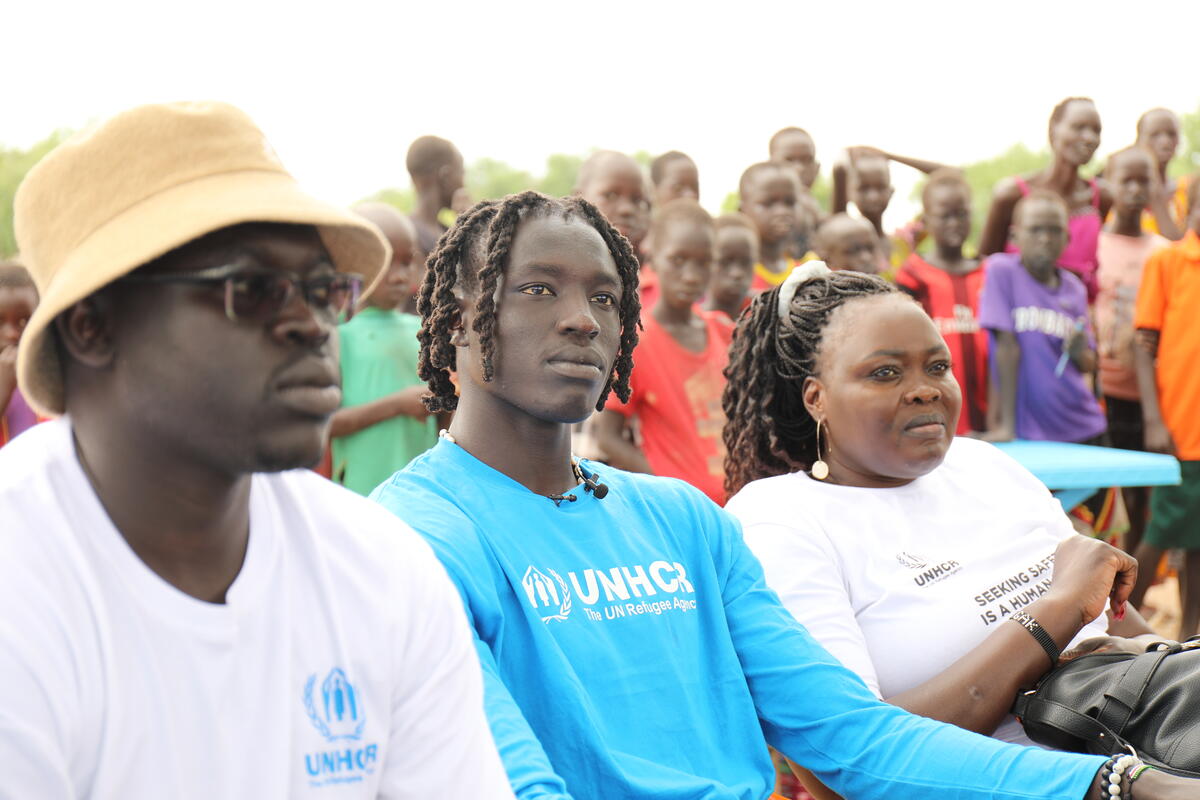Update on north-west Pakistan situation
Update on north-west Pakistan situation
In north-west Pakistan, UNHCR is continuing to look for land to develop more sites to accommodate an increasing number of displaced people seeking shelter in camps. Our field teams report that more and more people who have been staying with host families, with relatives or in schools are now arriving in camps. The new arrivals at camps say they feel they are putting additional pressure on host families who, in many cases, themselves have limited financial resources. Others say they have been staying in schools in villages where they received only limited assistance.
Two new camps which opened last week have almost reached their full capacity. Sugar Mill in Charsadda now hosts 2,800 people and Larama in Peshawar is hosting 4,800 people. New arrivals are being directed to the larger Jalozai camp, Nowshera, now hosting around 97,000 displaced people, including 52,000 who arrived since early May. Others are being directed to Yar Hussain camp in Swabi district which hosts 29,000 people. In Yar Hussain alone, 1,170 new IDPs were registered yesterday (Monday). The two camps are continuously being extended to accommodate new arrivals.
We are in discussions with the authorities to possibly open a new site in the Hazara district. Some 235,000 people are now reported to be staying in 21 organised camps in the North West Frontier Province (NWFP), according to local authorities. This includes more than 148,000 people who fled their homes over the past five weeks. In addition, some 100,000 people are staying in camp-like situations in schools and other government buildings. With the lifting up of the curfew today in Chakdara, in Malakand, more people may arrive in the safer areas.
In camps, we are working to improve conditions. With our partners, we continue to develop shading structures above individual tents to offer IDPs better protection against the heat. We are also continuing to put fences around the camps and to construct privacy walls for families. Meanwhile, outside the camps, we are continuing to build shade structures at the humanitarian hubs in Mardan, Nowshera, Swabi and Charssada districts.
UNHCR wants to scale up its assistance to people staying outside of camps, and is procuring more relief items. We urgently need funds to buy more supplies. We still require $67 million for our operation in Pakistan until the end of the year. This figure may need to be revised if the number of displaced people rises.
Together with UN-Habitat, World Vision, Norwegian Refugee Council, Catholic Relief Services, and Relief International, we are exploring the possibility of providing shelter kits for displaced people staying with host families. A technical working group is developing a prototype kit, and the project will be launched in rural areas where families have more land or gardens for using the kits. The project will alleviate some of the pressure and overcrowding currently experienced in the host families. In addition, we continue to work with UN-Habitat to distribute tents to people staying with host families. More than 3,500 tents have been distributed to date.
Tomorrow (Wednesday), UNHCR and partner agency Sarhad Rural Support Programme (SRSP) will start distributing relief items to diplaced people staying in schools, host families and rented accomodations in Charssada and Nowshera districts. Some 84,000 people (14,000 families) in Charssada and 54,000 people (9,000 families) in Nowshera will receive relief items such as mats, kitchen sets, plastic sheeting and jerrycans.
Meanwhile, Pakistanis themselves continue to show generosity toward the displaced people. In Jalala camp this week, a distribution of 1,000 kitchen sets and 300 gas cylinders was organized by the authorities as part of a private donation.
The National Database Authority (NADRA) has so far confirmed registration of almost 1.9 million internally displaced people (268,674 families) in an ongoing verification excercise to cross-check all people who had earlier registered under an initial fast-track process. Those confirmed include IDPs from Swat, Buner, Bajaur and Mohmand agencies, Lower Dir, the Malakand area and Shangla from both the 2008 and latest displacements. The verification process is ongoing, with thousands of forms yet to be verified.









